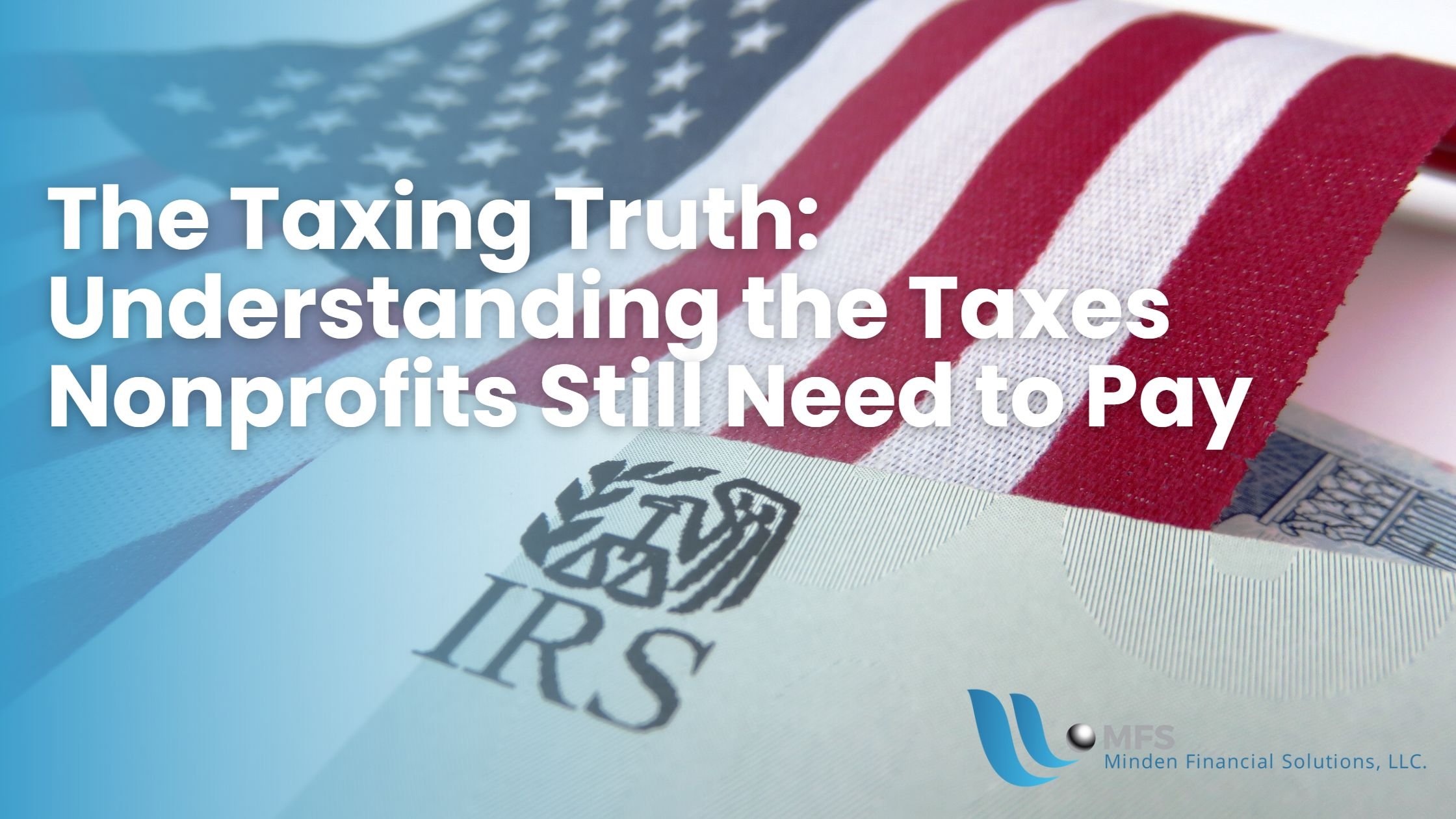Taxes Nonprofits Still Need to Pay
Today, let's venture into the fascinating world of taxes. Now, before you hit that back button, let me assure you that this won't be a drudgery-filled slog through tax codes. Instead, it'll be an engaging stroll down the avenues of understanding those taxes that nonprofits still need to pay. Yes, you heard that right. Despite the common misconception, nonprofits are not entirely tax-free.
So, grab your favorite cup of coffee, and let's dive in!
What's The Deal With Nonprofits And Taxes?
Most people think "nonprofit" is synonymous with "tax-free", but that's not entirely accurate. Sure, nonprofits are exempt from federal corporate income taxes on activities related to their primary purpose, but that doesn't mean they're completely off the hook. You see, tax exemptions for nonprofits are like a beach with specific sunbathing spots. Just because you've got a space in the sun, it doesn't mean you can't get burnt elsewhere.
So, let's take a look at some of the taxes a nonprofit organization might still need to pay.
Employment Taxes - Payroll's Unavoidable Partner
Nonprofit organizations, like their for-profit counterparts, are generally responsible for federal, state, and local employment taxes for their employees. These include Social Security and Medicare (FICA) taxes, federal unemployment tax (FUTA), and any applicable state employment taxes.
Nonprofits must withhold income tax from their employees' wages and remit them to the relevant tax authorities. Remember, even though the organization itself may be tax-exempt, its employees aren't. They are subject to the same tax laws as employees at any other type of organization.
Sales Tax - The Invisible Hand That Reaches Into Every Transaction
This is where state taxes come into the picture. In many states, nonprofits are not automatically exempt from state sales tax. Unless your organization obtains a specific sales tax exemption from your state, you may have to pay sales tax on the goods and services you buy.
Interestingly, the rules can change based on whether you are the buyer or the seller. For instance, in some states, nonprofits are required to collect sales tax when selling certain goods or services, even though they might be exempt when making purchases.
Navigating this duality can be as tricky as a tightrope walk over a shark tank, but it's an essential part of nonprofit tax compliance.
Are you feeling overwhelmed by the complexities of state taxes for your nonprofit? Let Minden Financial guide you. Visit our website today to discover how we can simplify your tax journey and help you stay on the right side of compliance.
Property Taxes - Not All Properties are Created Equal
The taxman's reach extends even to the property owned by nonprofits. While many jurisdictions exempt nonprofits from property taxes, the rules can be labyrinthine and exceptions abound.
In general, the property must be owned by the nonprofit and used for the organization's exempt purpose to qualify for a property tax exemption. But remember, state laws vary widely. Some states have additional requirements or offer only partial exemptions. For instance, some states require that the property be used exclusively for the exempt purpose, while others require a certain percentage of use.
If your nonprofit owns property, it's essential to consult with a local tax professional who understands the nuances of your state's property tax laws.
Wrap Up: Navigating the Nonprofit Tax Landscape
Whew! Who knew nonprofits had to keep so many tax balls in the air? The key takeaway here is that while nonprofits do enjoy significant tax benefits, they are not entirely immune to the tax bite.
Nonprofits must pay careful attention to employment, sales, and property taxes. To successfully navigate this landscape, it's crucial to understand the federal, state, and local tax laws that apply to your organization.
Stay informed, stay compliant, and remember: when it comes to taxes, be sure to check with your state's department of revenue to determine what taxes you may need to pay.

